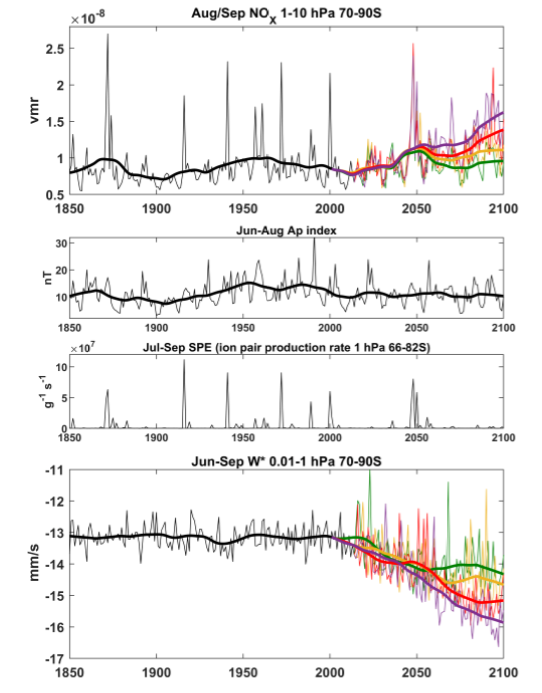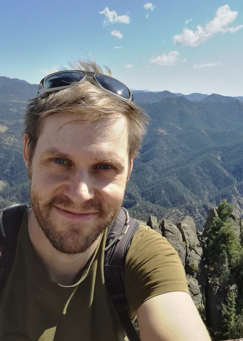Photo: Kjartan Olafsson
Nitrogen oxides (NOx) are one of the most important ozone-depleting substances, and may be produced by energetic electron precipitation (EEP) in the thermosphere and upper mesosphere. EEP is also associated with beautiful colors lightning up a dark sky known as the aurora.
In order for NOx to impact the ozone layer, it must be transported to the stratosphere. That takes place by the mean meridional circulation, which is expected to accelerate in the future under climate change. Therefore, postdoc Ville Maliniemi and co-authors have investigated the NOx distribution during the 21st century under a variety of future scenatios using simulations of the Whole Atmosphere Community Climate Model (WACCM). Their findings have now been published in Geophysical Research Letters, revealing that the EEP related stratospheric NOx will increase in the future. This will lead ozone depleting NOx cycle to become more important in the years to come, in particular if stratospheric chlorine species decline, as it is expected to be. In this new GRL-paper entitled «Will climate change impact polar NOx produced by energetic particle precipiation?», Ville Maliniemi and co-authors conclude that EEP-related atmospheric effects may become more prominent in the future.

See figure 2 in the GRL-paper for figure description.
When asked about the motivation behind this study, Maliniemi explains: “For a few years I have been developing this idea of studying EEP related atmospheric effects in different atmospheric states. Last September I got the possibility to visit Boulder and start working with the WACCM climate model to study this.” Maliniemi also has some thoughts about future work, based upon the results found: “The ozone depletion due to the EEP-NOx can potentially influence atmospheric dynamics, e.g., temperature and circulation. I want to study whether this becomes more pronounced in future climate. I was recently granted a NFR project to study this, which starts this August”.

Postdoc Ville Maliniemi, who joined the Birkeland Centre for Space Science in February 2019, has always been intrigued by the Universe: “Since my childhood I have been fascinated by space, whether it be aurora, distant galaxies or traveling to other planets”.
Like most others, these current corona-times have impacted Maliniemi’s daily life: “Being a father of little kids has made organizing work and home more difficult. However, I am pretty good at adapting to new situations and using new digital tools has been fairly easy. On a broader scale, I sense a kind of increased respect for science from a larger audience, even if it is mainly towards medical research. It will be interesting to see if and how this situation will change society as a whole and if it will help us to adapt to a more sustainable lifestyle in order to tackle long-term issues of mankind”. Then he adds: “I am certainly happy we are heading towards summer; I don’t want to imagine this situation in November”.




